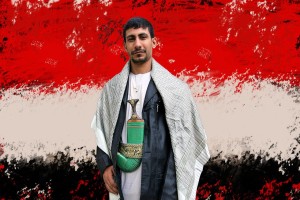
Sana’a/New York: The ongoing security situation has severely restricted movements in and out of Ma’rib Governorate’s Al Abdiyah district in Yemen for an estimated 35,000 people, including 17,000 extremely vulnerable people who had found refuge there after fleeing conflict in another area.
The UN’s Resident and Humanitarian Coordinator for Yemen, David Gressly, informed today that the escalation of fighting in Yemen in recent weeks, particularly in Ma’rib, Shabwah and Al Bayda Governorates, is having a devastating impact on civilians.
He called on all parties involved in the fighting to agree now to a cessation of hostilities for Al Abdiyah district, to allow for the safe passage of civilians and aid workers, and for the evacuation of all of those who were wounded in the fighting.
Hans Grundberg, the UN Secretary-General’s Special Envoy for Yemen, had earlier briefed the Security Council on October 14, 2021 on his numerous consultations with Yemeni, regional and international actors. In all these discussions, he said, he focused on the question of how to move toward a sustainable political solution to end the conflict.
Grunberg added that the Yemenis he spoke to have without exception stressed the necessity to end the war. Ramesh Rajasingham, the Assistant Secretary‑General for Humanitarian Affairs, also briefed and warned Council members that aid work is getting harder in Yemen, mostly because aid organizations are starting to run out of money.
On the UN humanitarian operations there, Rajasingham also said that aid agencies were now helping nearly 13 million people across the Yemen. That’s about 3 million more people than just a few months before and is a direct result of more donor funds coming in over the past few months. But without more money, up to four million people could see their food aid reduced.
Maysaa Shuja al-Deen, Fellow at Sana’a Center for Strategic Studies, spotlighted the unprecedented escalation of military operations in the Marib Governorate, reporting that as battles move closer to oil and gas fields, the war may expand to other areas in Yemen and undermine the already limited opportunities for peace.
Since the war began seven years ago, it has become normal to describe the situation as “the largest humanitarian crisis in the world,” she said, stressing that it is also “the worst international response” to a humanitarian crisis. She detailed massive imbalances in the relief process, pointing out that most of the Yemeni population is under the control of armed Houthis, who seize humanitarian aid before it reaches those for which it is intended. Further, weak Government institutions and bureaucratic obstructions impede the travel and movement of relief workers. Relief operations must be reassessed and held accountable to ensure that aid is not wasted.
Outlining several practical steps, she urged the Council to address the crisis, including through establishing and funding a coordinating mechanism for the delivery of humanitarian aid; alleviating the financial isolation of Yemeni banks; ensuring delivery of COVID‑19 vaccines to all parts of the country; and stopping the supply of weapons to warring parties. “At the end of the day, the best relief for Yemenis is ending the war,” she declared.
As fierce fighting continues, including in Marib, Shabwah and Al Bayda Governorates, where clashes have escalated over recent weeks, this escalation is having an increasingly devastating impact on civilians. Nearly 10,000 people were displaced in Marib in September 2021, — the highest rate recorded in the governorate in a single month so far this year.
“We are particularly concerned about the situation in Al Abdiyah district, in the south-west of Marib. The district is home to an estimated 35,000 people, including many who had found refuge there after fleeing conflict in neighbouring areas. The area has been encircled by Houthi forces since late September.
– global bihari bureau





